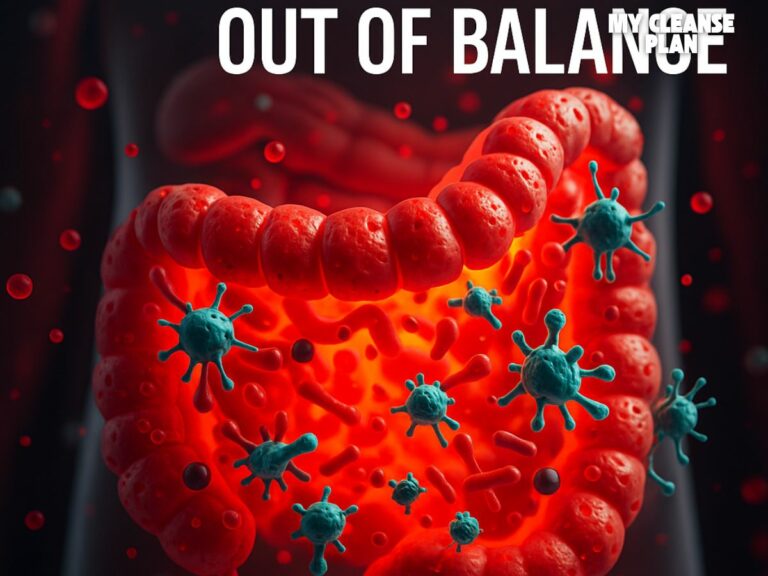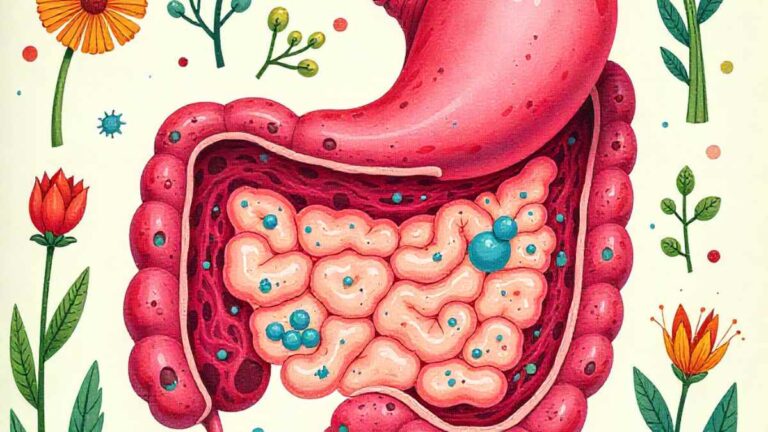Interview with a Microbiome Scientist: Q&A Exploration
Key Takeaways
- Learn about the fundamental functions of the human microbiome.
- Discover how your diet and lifestyle influence your gut bacteria.
- Understand the relationship between the microbiome and various health conditions.
- Explore current research and the future of microbiome science.
- Gain practical advice on how to improve your gut health.
- Get insight into the life of a microbiome scientist.
Ever felt a bit off, like your gut was telling you something you couldn’t quite understand? Maybe a little bloating, fatigue, or just a general sense of imbalance?
That feeling could be your microbiome – the trillions of tiny organisms living inside you, primarily in your gut.
This post takes you on a fascinating exploration through an interview with a microbiome scientist.
You’ll get straight answers to common questions about this complex ecosystem, what it does, and how it impacts your health.
We’ll explore how you can learn more about your health from the most important area of the body.
You’ll learn about the latest research, practical tips, and gain a fresh perspective on how to support your gut health and overall well-being, improving your day-to-day life.
![Interview with a Microbiome Scientist Q&A Exploration[1]](https://mycleanseplan.com/wp-content/uploads/2025/11/Interview_with_a_Microbiome_Scientist__QA_Exploration1.jpg)
Unveiling the Secrets of Your Gut: An Interview with a Microbiome Scientist
Your gut is more than just a place to digest food. It’s home to a vast community of microorganisms, including bacteria, fungi, viruses, and archaea, collectively known as the microbiome.
This intricate ecosystem plays a vital part in your overall health, influencing everything from digestion and immunity to mental well-being.
But what exactly does the microbiome do? How does it affect your health, and what can you do to keep it healthy? We spoke with a leading microbiome scientist to find out.
The Microbiome’s Role: More Than Just Digestion
The microbiome is essential to human health, performing several important functions. These microorganisms help break down food that your body can’t digest on its own.
They extract energy from those leftovers and provide important nutrients. They also produce vitamins, such as vitamin K and B vitamins, that your body needs to function correctly. The microbiome also plays a large role in protecting you from harmful pathogens.
- Nutrient Absorption: The microbiome helps break down complex carbohydrates and fibers, turning them into simpler sugars that the body can use. This process also produces short-chain fatty acids (SCFAs), which provide energy to the cells lining your gut and have several benefits for your overall health. These SCFAs help regulate inflammation, improve gut barrier function, and can even influence your metabolism.
- Immune System Regulation: Your gut and its bacteria have a close relationship with your immune system. The microbiome helps the immune system to mature and function correctly. It also trains the immune system to differentiate between friendly and harmful microbes. A diverse and healthy microbiome reduces the risk of autoimmune diseases by helping to keep the immune system in check.
- Pathogen Defense: The microbiome acts as a protective barrier, preventing harmful bacteria from colonizing your gut. It competes with bad bacteria for space and nutrients. Some gut bacteria also produce antimicrobial substances that kill or inhibit the growth of pathogens.
The gut microbiome is truly remarkable. It’s a key element in maintaining your well-being, a dynamic ecosystem that’s constantly interacting with your body and the environment.
You could view it as an internal garden that requires care. A healthy, diverse microbiome is like a thriving garden that supports overall health.
The Connection: Microbiome and Various Health Conditions
The health of your microbiome can significantly affect your overall health. Imbalances in the gut microbiome, known as dysbiosis, have been linked to a variety of health problems.
The link is seen as having a strong relationship with digestive issues, mental health conditions, and more. Understanding this connection is the first step toward promoting a healthy gut environment.
- Digestive Problems: An unhealthy microbiome can contribute to irritable bowel syndrome (IBS), inflammatory bowel disease (IBD), and other digestive problems. Dysbiosis can cause inflammation in the gut, leading to symptoms like bloating, gas, abdominal pain, and changes in bowel habits.
- Mental Health: The gut-brain axis is a two-way communication pathway between your gut and your brain. The microbiome can influence your mental health. Imbalances in gut bacteria have been associated with increased anxiety, depression, and other mood disorders. The gut bacteria produce neurotransmitters, like serotonin and dopamine, that impact your mood and brain function.
- Metabolic Issues: Your gut microbiome is also connected to your metabolism. Dysbiosis can contribute to weight gain, insulin resistance, and type 2 diabetes. Certain gut bacteria can affect how your body processes and stores energy, leading to metabolic issues. A healthy microbiome can improve your body’s response to insulin and promote a healthy metabolism.
Research suggests that a healthy and diverse microbiome is associated with better overall health, while dysbiosis can contribute to various diseases.
Further exploration of this area helps clarify the links between the microbiome and health, helping people take proactive measures to improve their gut health.
Diet and Lifestyle: Shaping Your Microbiome
What you eat and how you live have a huge impact on your gut. Diet and lifestyle choices are vital to your gut health and, by extension, your general well-being.
Understanding these elements can empower you to make informed decisions that promote a healthy and balanced microbiome.
The Power of Diet: Fueling a Thriving Gut
Your diet is the primary fuel source for your gut bacteria. Eating a diet that supports a diverse and healthy microbiome can have a very positive effect on your health.
Certain foods can promote the growth of beneficial bacteria, while others can harm them. Knowing what to include in your diet is key to creating a healthy gut environment.
- Fiber-Rich Foods: Fiber is a prebiotic, meaning it feeds the good bacteria in your gut. Eat lots of fruits, vegetables, whole grains, and legumes. These foods are a source of fiber, and they’ll help your gut bacteria thrive. A diet rich in fiber can increase the diversity of your gut microbiome, which is associated with better health outcomes.
- Probiotic Foods: Probiotics are live microorganisms that can benefit your health. They can be found in fermented foods such as yogurt, kimchi, sauerkraut, and kombucha. Consuming probiotic-rich foods can introduce beneficial bacteria into your gut, which can help rebalance your microbiome.
- Processed Foods and Sugar: Processed foods and excessive sugar can harm your gut health. They can disrupt the balance of bacteria, causing inflammation and promoting the growth of harmful microbes. It’s best to limit your intake of these foods to maintain a healthy gut.
Making conscious food choices can significantly improve the composition and function of your gut microbiome.
By focusing on fiber-rich foods, probiotic-rich foods, and minimizing processed foods, you can create a favorable environment for your gut bacteria.
Lifestyle Choices: Supporting a Healthy Gut
It’s not just about what you eat. Certain lifestyle factors also play a key role in shaping your gut health.
Regular exercise, stress management, and adequate sleep can all affect your microbiome. You can make some changes to your daily routine to support a thriving gut environment.
- Regular Exercise: Exercise has a positive effect on your gut microbiome. Regular physical activity can increase the diversity of your gut bacteria and improve your overall health. It also helps reduce inflammation and can promote the growth of beneficial bacteria. Aim for at least 30 minutes of moderate-intensity exercise most days of the week.
- Stress Management: Chronic stress can negatively impact your gut health. Stress can disrupt the balance of your gut bacteria and increase gut inflammation. Practices like meditation, yoga, and spending time in nature can help reduce stress and support a healthy gut.
- Adequate Sleep: Getting enough sleep is also key to a healthy gut. Poor sleep can disrupt your gut microbiome and increase inflammation. Aim for 7-9 hours of quality sleep per night. Establishing a regular sleep schedule and creating a relaxing bedtime routine can improve your sleep quality.
Incorporating these lifestyle habits into your daily routine can help you maintain a balanced and healthy gut microbiome. By considering your diet and incorporating elements like exercise, stress management, and sleep, you’re investing in your long-term health and well-being.
Advances in Microbiome Research
Microbiome science is a rapidly growing field, with scientists making new discoveries and advancements every day.
Research techniques and analysis methods are growing in sophistication, allowing scientists to gain an even greater understanding of the gut’s intricate ecosystem. These advances are laying the foundation for many future medical applications.
Cutting-Edge Research: Exploring the Unknown
Recent research efforts are focused on improving our knowledge of the microbiome. Scientists are exploring ways to manipulate the microbiome to treat various health problems.
New technologies and research methods continue to expand our capacity to analyze the composition and function of the gut microbiome.
- Fecal Microbiota Transplantation (FMT): FMT is a medical procedure where fecal matter from a healthy donor is transferred into the gut of a patient. It’s mainly used to treat severe infections of Clostridioides difficile. Studies are exploring FMT’s potential for other conditions, such as IBD, metabolic syndrome, and mental health disorders.
- Personalized Nutrition: Advances in microbiome research are paving the way for personalized nutrition. Scientists can analyze an individual’s gut microbiome to provide dietary recommendations. This approach considers unique needs and responses, helping to optimize health.
- Probiotic and Prebiotic Developments: Researchers are working to develop more effective probiotics and prebiotics. They’re exploring new strains of bacteria with specific health benefits and finding innovative ways to deliver them to the gut. The goal is to create products that can support gut health.
The pace of discovery in microbiome science is accelerating, and these research efforts are leading to more options for maintaining a healthy gut microbiome.
The ongoing research will certainly create new interventions that support health and manage different health problems.
The Future of Microbiome Science: Potential Applications
The future of microbiome science looks promising, with numerous potential applications. The focus is to use the knowledge to improve human health.
From personalized medicine to new treatments, the potential of microbiome research is vast and constantly evolving.
- Diagnostic Tools: Microbiome analysis could become a key element in diagnosing health conditions. By studying the composition of the gut bacteria, doctors could identify markers of various diseases, allowing early intervention and personalized treatment strategies.
- New Therapies: Microbiome science will bring new therapies for health problems. This can include targeted probiotic treatments designed to address specific imbalances in the gut. Development is underway to explore the potential of engineered bacteria to treat metabolic and autoimmune diseases.
- Personalized Health Recommendations: As our understanding of the microbiome improves, personalized health recommendations will become more prevalent. This includes diet, lifestyle, and supplemental strategies based on an individual’s unique microbiome profile. This will promote a more tailored approach to health and wellness.
The future of microbiome science shows a lot of promise. With advances in research and technology, new possibilities and insights into the connection between your gut and your health are coming. We’re on the cusp of a revolutionary change in how we understand and care for our bodies.
An Interview with a Microbiome Scientist: Insights and Advice
We had the chance to speak with a microbiome scientist. We explored their work and obtained advice for people seeking to improve their gut health. We’ll look at the daily routines, areas of expertise, and overall thoughts of a microbiologist.
A Day in the Life: Inside the Lab
A typical day in the life of a microbiome scientist is dynamic, blending lab work, data analysis, and the sharing of knowledge.
Their routine often involves a combination of research, collaboration, and writing. Each day offers new challenges and discoveries.
- Lab Experiments: Microbiome scientists often start their day by conducting lab experiments. This may involve collecting samples, culturing bacteria, extracting DNA, and carrying out molecular biology techniques. Precise lab work is important to get accurate and reliable results.
- Data Analysis: Much of a scientist’s work includes data analysis. They use specialized software to analyze data from experiments. They look for patterns and insights into the composition and function of the microbiome. This part of the job requires skill in both biology and computer science.
- Collaboration and Communication: Microbiome scientists spend time collaborating with other researchers. Sharing the research findings is key, and scientists often present their work at conferences, write articles for scientific journals, and talk about their work to the public. They also keep up with the latest advancements in the field.
The daily routine of a microbiome scientist is varied and interesting. It requires a combination of technical skills, analytical abilities, and communication skills. It is always changing, and it provides chances for exploration and discovery.
Expert Insights: What the Scientist Shared
In our interview, the microbiome scientist shared insights and advice to help people better understand their gut and overall health. From dietary tips to lifestyle habits, they provided practical advice.
- The Importance of Diversity: One of the key points was the importance of the diversity of the microbiome. The greater the diversity of bacteria in your gut, the better. They suggested consuming a varied diet rich in fiber, fruits, and vegetables to encourage a broad and diverse microbial community.
- Personalized Approach: The scientist emphasized the need for a personalized approach to gut health. What works for one person may not work for another. They suggest consulting with a healthcare professional to identify your individual needs.
- Patience and Consistency: The scientist also stressed that gut health is a long-term process, requiring patience and consistency. They advise gradually integrating healthy lifestyle changes to allow your microbiome to adapt. It’s about small, sustainable changes that lead to meaningful results.
The interview provided useful information on improving gut health. These insights will help you incorporate new habits and build a more informed approach to well-being.
FAQ Of Interview with a Microbiome Scientist: Q&A Exploration
What is the microbiome?
The microbiome is a community of trillions of microorganisms, including bacteria, fungi, viruses, and archaea, that live in and on your body, mainly in the gut.
How does the microbiome affect my health?
The microbiome plays a crucial role in digestion, immunity, and overall health. It helps break down food, produce vitamins, regulate your immune system, and protect you from harmful pathogens.
What can I do to improve my gut health?
You can improve your gut health by eating a diet rich in fiber and probiotic foods, managing stress, getting enough sleep, and engaging in regular exercise.
Are probiotics good for everyone?
Probiotics can be very helpful for many people, but they may not be right for everyone. Consulting with a healthcare provider can help you determine the best approach for you.
How long does it take to see results from improving my gut health?
It can take several weeks or even months to see noticeable results from improving your gut health. It is a long-term process, and consistency is key.
Final Thoughts
Throughout our exploration of the Interview with a Microbiome Scientist: Q&A, we’ve gained a clearer picture of your gut and its crucial role in your health.
The conversation with the scientist highlighted the complexity of the microbiome, the effects of diet and lifestyle, and the possibilities of microbiome research.
You discovered how the trillions of microorganisms in your gut influence everything from digestion and immunity to mental well-being.
You learned the value of a balanced diet and regular exercise, stress management, and more. A few tweaks to your lifestyle could significantly impact your gut’s health.
Remember that improving your gut health is a journey, not a destination. Start by making small, sustainable changes to your diet and lifestyle.
Focus on including fiber-rich foods, probiotic-rich foods, and limit processed foods. Introduce regular exercise, and practice stress-reducing activities like meditation or yoga.
Listen to your body and consult with healthcare experts to tailor your approach. By taking these measures, you can promote a thriving gut microbiome. Your body will thank you!



![How Urban Living Impacts Your Gut Microbiome[1]](https://mycleanseplan.com/wp-content/uploads/2025/10/How_Urban_Living_Impacts_Your_Gut_Microbiome1-768x448.jpg)
![Gut Health in Seniors Preserving Diversity With Age[1]](https://mycleanseplan.com/wp-content/uploads/2025/11/Gut_Health_in_Seniors__Preserving_Diversity_With_Age1-768x448.jpg)

